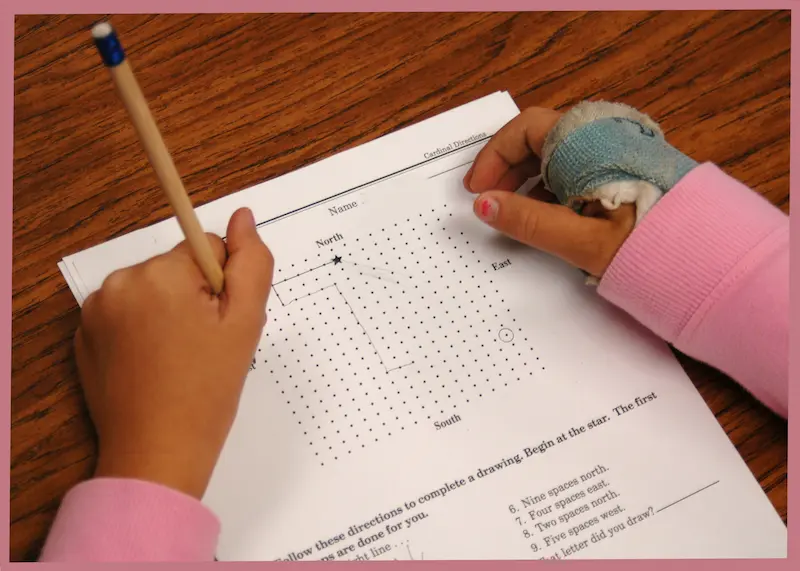If you’re a student who struggles to remember everything you study, knowing how to improve memory for studying can make a huge difference in your learning and exam performance. Memory is like a muscle—it gets stronger when exercised correctly. By using the right techniques, habits, and lifestyle changes, you can retain information longer, recall it faster, and make your study sessions far more effective.
In this detailed guide, we’ll cover all the strategies you need to boost your memory and improve your academic performance.
1. Understand the Material First

One of the most important foundations in how to improve memory for studying is understanding the material before attempting to memorize it. Your brain remembers concepts better when it makes sense rather than being forced to store random facts.
How to implement this:
- Break topics into chunks: Don’t try to learn a whole chapter at once. Divide it into smaller sections and focus on one at a time.
- Summarize in your own words: After reading a section, rewrite it in your own words. This forces your brain to process the information actively.
- Make real-life connections: Relate abstract concepts to everyday situations. For example, if you’re learning physics formulas, imagine them applied in a sports scenario or daily activity.
Why it works: Understanding strengthens neural pathways, creating a framework for memory that makes recalling facts easier.
2. Use Active Learning Techniques
Active learning is key in how to improve memory for studying. Passive reading or highlighting is often ineffective because it doesn’t engage your brain fully.
Techniques to try:
- Summarize notes regularly: After each study session, write a concise summary of key points.
- Teach someone else: Explaining a topic aloud to a friend, or even to yourself, reinforces your understanding.
- Self-quizzing: Use flashcards or online quiz tools to test your recall. For instance, write questions on one side of a card and answers on the other.
Active learning repeatedly challenges your brain to retrieve information, strengthening memory connections over time.
3. Employ Mnemonics and Memory Tricks
Mnemonics are memory aids that make it easier to remember facts, lists, or sequences. This is especially important in how to improve memory for studying subjects that involve formulas, dates, or definitions.
Examples:
- Acronyms: Remember the planets with “My Very Educated Mother Just Served Us Noodles” (Mercury, Venus, Earth…).
- Rhymes: Create catchy rhymes to remember lists or steps in a process.
- Visualization: Turn abstract information into a vivid mental image. For example, imagine a molecule as a colorful sculpture in your mind.
These techniques turn difficult-to-remember information into something your brain finds easier to store and recall.
4. Use Spaced Repetition
Spaced repetition is a proven technique in how to improve memory for studying. Instead of cramming, you review information over increasing intervals. This helps transfer knowledge from short-term to long-term memory.
Implementation tips:
- Pomodoro Technique: Study for 25–30 minutes, then take a 5-minute break. After four cycles, take a longer break of 15–20 minutes.
- Multiple reviews: Schedule multiple review sessions over several days. Reviewing material shortly after learning it strengthens retention.
- Use apps: Tools like Anki or Quizlet automatically schedule flashcards for spaced repetition.
Spaced repetition ensures information stays in your memory and reduces last-minute cramming stress.
5. Maintain a Healthy Lifestyle

A healthy brain is essential in how to improve memory for studying. Your lifestyle directly affects your ability to retain and recall information.
Key factors:
- Exercise: Regular physical activity increases blood flow to the brain, enhancing cognitive function. Even a 20-minute walk or light stretching helps.
- Sleep: Aim for 7–9 hours of sleep. Sleep consolidates memories, making learning more effective. Avoid all-night cramming.
- Nutrition: Eat brain-friendly foods:
- Omega-3s (salmon, walnuts, flaxseed)
- Antioxidants (berries, dark chocolate, leafy greens)
- Stay hydrated—dehydration reduces memory efficiency.
- Omega-3s (salmon, walnuts, flaxseed)
Your brain performs best when your body is well-nourished, rested, and active.
6. Minimize Distractions
Distractions prevent your brain from encoding information properly, so reducing them is critical in how to improve memory for studying.
Practical tips:
- Keep phones and social media out of reach or use blocking apps.
- Choose a quiet study area with minimal interruptions.
- Organize your study space and materials beforehand to avoid wasting time.
A focused environment allows your brain to store information more effectively.
7. Practice Mindfulness and Meditation
Stress can significantly impair memory. Mindfulness and meditation help in how to improve memory for studying by increasing focus and reducing anxiety.
Simple exercises:
- Spend 5–10 minutes daily doing deep breathing or guided meditation.
- Practice staying present while studying. Avoid multitasking.
A calm, focused mind encodes and retrieves information more efficiently.
You may also like to read this:
Best Study Tips For Students To Improve Learning & Focus
How To Focus While Studying: Proven Tips For Students
Daily Study Routine For Exams: Boost Productivity Fast
Time Management Tips For Students – Boost Productivity
8. Engage Multiple Senses
Using multiple senses while studying improves memory. This technique is very effective in how to improve memory for studying because it strengthens neural connections.
Ways to apply:
- Visual: Use diagrams, flowcharts, and color-coded notes.
- Auditory: Read notes aloud or listen to recordings.
- Kinesthetic: Write notes by hand rather than typing.
Combining senses creates stronger mental associations, making recall easier.
9. Make Studying Fun and Rewarding
Memory retention improves when learning is associated with positive emotions. This is a practical strategy in how to improve memory for studying.
Ideas:
- Turn your study topics into games, challenges, or quizzes.
- Reward yourself after completing tasks.
- Study in groups and quiz each other in a fun, competitive way.
Engaging your brain in enjoyable ways helps information stick longer.
10. Be Consistent and Patient
Improving memory is a gradual process. Consistency, repetition, and patience are essential in how to improve memory for studying.
Key reminders:
- Avoid cramming—space out study sessions over time.
- Celebrate small achievements.
- Maintain a positive mindset—stress and frustration reduce memory efficiency.
Consistency builds habits that strengthen your memory naturally.
Conclusion
Learning how to improve memory for studying is about combining understanding, active engagement, healthy lifestyle choices, and consistent habits. By using techniques like mnemonics, spaced repetition, mindfulness, and multi-sensory learning, you can enhance memory, retain information longer, and make studying much more effective.
Start applying these strategies today, and you’ll notice that recalling and understanding study material becomes much easier and less stressful.
FAQs: How to Improve Memory for Studying
1. What is the best way to improve memory for studying?
Focus on understanding concepts, use active learning techniques, mnemonics, and spaced repetition, and maintain a healthy lifestyle.
2. How long should I study to retain information effectively?
Short, focused sessions of 25–30 minutes with 5-minute breaks (Pomodoro Technique) are ideal. Review material over several days.
3. Does sleep affect memory?
Yes. Sleep consolidates memories, moving them from short-term to long-term storage. Lack of sleep reduces recall.
4. Are mnemonics useful?
Absolutely. Acronyms, rhymes, and visualization make it easier to remember facts and sequences.
5. How can I stay focused while studying?
Minimize distractions, study in a quiet space, organize materials, and try mindfulness or deep breathing.




